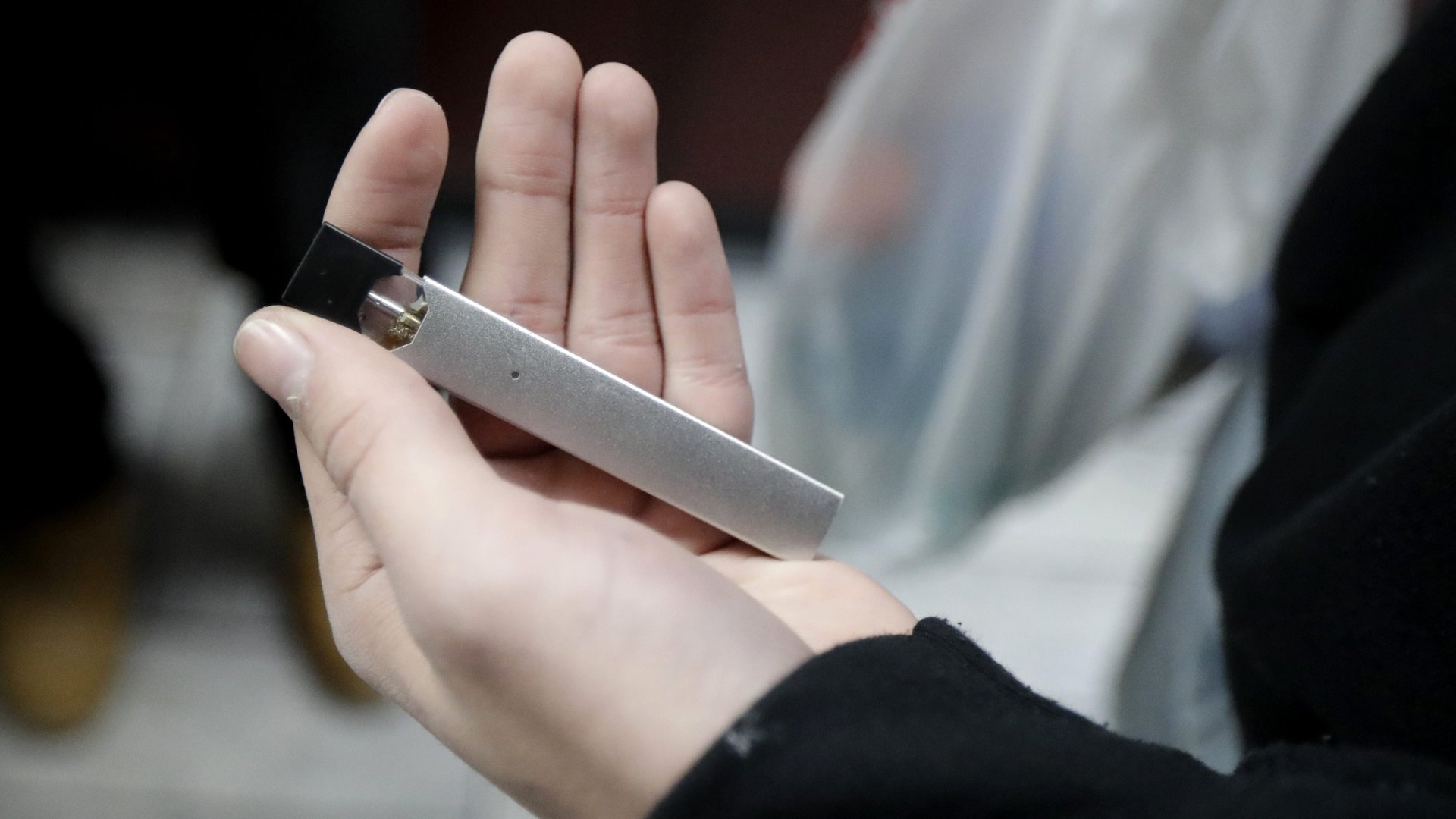Juul’s new CEO is a Big Tobacco veteran
Juul, the largest e-cigarette retailer in the US, has brought on a seasoned captain to weather the storm of concerns over e-cigarette safety and youth vaping.


Juul, the largest e-cigarette retailer in the US, has brought on a seasoned captain to weather the storm of concerns over e-cigarette safety and youth vaping.
Early on the morning of Sept. 25, Kevin Burns announced that he was stepping down as Juul’s CEO. K.C. Crosthwaite, the former chief growth officer at Altria Group, which owns 35% of Juul, will take his place immediately. Altria also owns several US tobacco companies.
At the same time, tobacco giant Philip Morris International (PMI) and Altria decided to hit the brakes on a potential merger. Instead they will focus on working together to launch the heated-tobacco product IQOS throughout the US—an electronic device that heats small rolls of tobacco rather than a liquid containing tobaccoless nicotine.
The move at Juul is a typical reshuffling of leaders in the often-entangled smoking industry. As Quartz has reported, PMI and Altria used to be part of the same company; the proposed merger would have been a reunion after the two split in 2008. The companies’ divorce appeared to be more than amicable, though: PMI licensed IQOS to Altria, which sells products in the US. Altria, which owns Philip Morris US (a separate entity from PMI), has returned the favor by licensing its e-cigarette products (excluding Juul until recently) to PMI to sell in other parts of the world.
More specifically, though, Crosthwaite’s history with cigarette alternatives may prove critical to a company facing an uncertain future. According to the press release from Juul, Crosthwaite played an instrumental part in commercializing IQOS and preparing it for launch in the US. While IQOS is not an e-cigarette product—it contains tobacco—it will likely appeal to vapers who have recently started questioning the safety of their devices.
Over the last several months in the US, over 530 people have become ill and nine people have died of acute lung illnesses tied to vaping. Even though Juul devices don’t seem to be involved in these cases, the company is being impacted by the recommendation to stop vaping from the US Centers for Disease Control and Prevention. Shortly after Juul began selling its products in India and China, sales came to a screeching halt.
The unique threat of those lung cases is also amplifying much longer-held concerns about Juul’s appeal to minors, increasing public support for potential regulations. Preliminary data from the US National Youth Tobacco Survey shows that in 2019, the percentage of minors who have used an e-cigarette in the last 30 days continued to rise to nearly 30%.
Both the FDA and the Federal Trade Commission are investigating whether Juul marketed to minors, or claimed that their product was safer than smoking traditional cigarettes without authorization. Representatives from the CDC spoke to Congress yesterday about the addictive qualities of e-cigarettes. And per the Wall Street Journal, investigators from the Northern District of California are beginning a criminal probe into Juul.
Already, smaller municipalities—including Michigan, Massachusetts, New York, and the cities of Los Angeles, Washington, DC, and San Francisco (Juul’s hometown)—have made moves to ban flavored e-cigarette cartridges, or ban e-cigarettes altogether. Earlier this month, officials from the Trump administration said they planned to ban all flavored e-cigarette cartridges at the national level.
Crosthwaite will have to contend with the impact of all these changes: According to the New York Times, officials at Juul estimated that their sales would drop nearly 80% if a national ban on flavored cartridges took effect.
Meanwhile, the US Food and Drug Administration just concluded the process of reviewing IQOS’ safety, which took two years. Sales began earlier this summer.